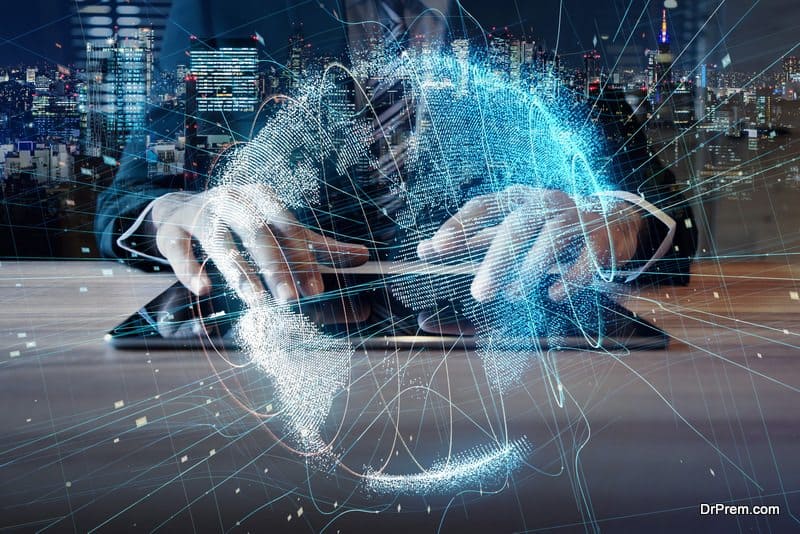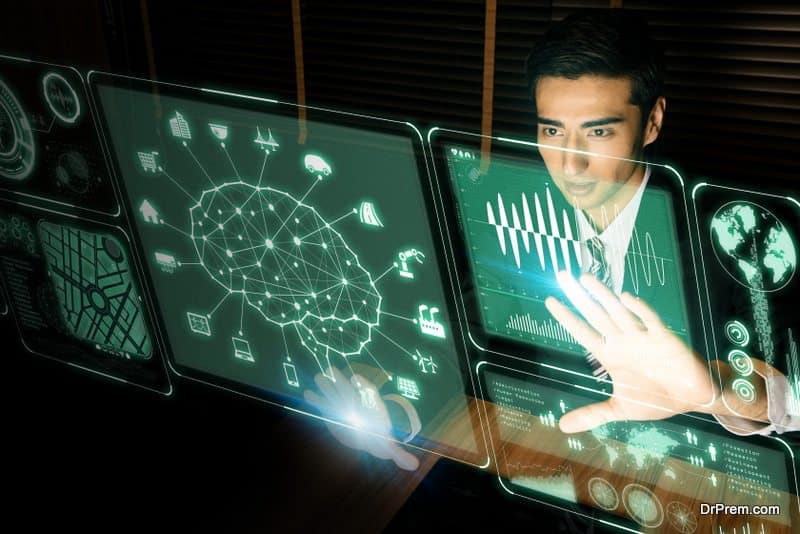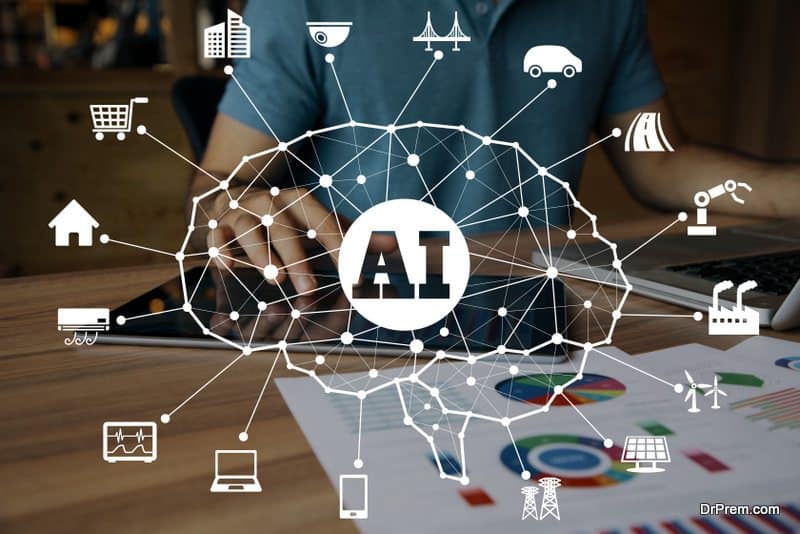Artificial Intelligence, i.e. computers being able to carry out human activities; is now taking over control of most tasks, which were earlier limited to only men. There has been a sudden transformation from using manpower to diverting most responsibilities to be handled by Artificial Intelligence. This is done so that the activities are carried out accurately and in a much better way than a man would. Activities such as Artificial intelligence in governance, for tracking, and for mundane tasks are being carried out too.
Although there are plenty of advantages of Artificial Intelligence, there are quite a few drawbacks too. Artificial Intelligence may also become the reason behind social inequality; Artificial Intelligence is nothing different. Read on to know more about how Artificial intelligence in governance is going to affect us and what can be expected of it in the near future.
Artificial Intelligence in Governance:
 Of late, it has been decided to include AI as one of the most reliable pillars of government bodies. The reasons were simple: Artificial intelligence in governance is quite reliable, and it is less prone to make errors. Moreover, the application of Artificial Intelligence in e-governance is bound to bring about such surprising and fascinating changes, like it has in the field of information and technology.
Of late, it has been decided to include AI as one of the most reliable pillars of government bodies. The reasons were simple: Artificial intelligence in governance is quite reliable, and it is less prone to make errors. Moreover, the application of Artificial Intelligence in e-governance is bound to bring about such surprising and fascinating changes, like it has in the field of information and technology.
How Can We Expect Artificial Intelligence to Boost Governance Quality?
- Application of Artificial Intelligence in e-governance will ensure that no decisions are made by relying on gut feelings or by letting emotions get in the way. AI will strictly adhere to decision made by relevant facts and data and not because someone ‘feels like it.’
- AI can be relied upon by leaders to tell them which members of their board are trustworthy and who needs to work on themselves. This is beyond human capabilities since it is far easier to trick a human than a machine.
- If employed and used correctly, nothing can stop Artificial Intelligence from becoming the central pillar in the growth strategically designs in the near future.
What Are the Benefits of Artificial Intelligence?
 Artificial Intelligence was created for the sole purpose of smoothening out daily tasks for man and making life easier. A life devoid of all regular and time-consuming mundane activities; leaves plenty of time for man to get creative and do what one does best. Moreover, digital transformation will highlight the advantages of AI than disadvantages.
Artificial Intelligence was created for the sole purpose of smoothening out daily tasks for man and making life easier. A life devoid of all regular and time-consuming mundane activities; leaves plenty of time for man to get creative and do what one does best. Moreover, digital transformation will highlight the advantages of AI than disadvantages.
- AI serves the best advantage by carrying out mundane tasks and leaving out the creative work by employing Artificial intelligence in governance. Humans are not made for going through the same pattern of work each day, and this is where AI takes in. Manpower, especially the ones supervising, will now be left to do the work they do best.
- Man is quite prone to committing mistakes and errors even while giving his best shot. AI greatly minimizes that risk. Man is, after all, human; and humans are prone to make mistakes, but AI software and machines are not.
- AI happens to overcome human limitations by getting into research ideas, which are humanly impossible.
- AI, unlike manpower, doesn’t need to be paid or given refreshments whatsoever. In addition, AI is highly unlikely to go on leaves. This is one of the best advantages of employing Artificial intelligence in governance.
- We are increasingly relying upon day-to-day applications of Artificial intelligence in governance; examples of AI dependence include the GPS lady giving out directions or virtual assistants like Siri and Cortana. These are just some of the many ways of how well and to what extent benefits of Artificial Intelligence can improve our lives.
What Are the Challenges Associated with Artificial Intelligence
Many people have a misconception that Artificial intelligence in governance only gives out benefits and there are no drawbacks to it. In fact, it is an ongoing debate if Artificial Intelligence is a boon or a bane to mankind. Man is looking at AI as not just as a machine or software to carry out generic repetitive tasks. AI is also emotionally compatible software, which can cater to man and sympathize with his needs.
- Artificial Intelligence can do little to nothing if the data your governance team provides is far from accurate. AI needs to be fed quality content for it to give out the best and the most reliable results. In short Garbage in, Garbage out
- Lack of understanding of AI is a real thing. Many board members are quite habitual to working with people. Hence they are not comfortable with AI software and don’t know how to use it in the best way yet.
- Employing Artificial intelligence in governance can lead to serious unemployment issues. Since Artificial Intelligence isn’t capable of cheating or other fraudulent means; it can even lead to men losing faith in each other.
What Is the Future of Artificial Intelligence?
 In the not-so-distant future, AI is going to gain recognition as the most reliable and practical source of information and ideas both in the private as well the public sectors. It is also going to bridge the gap between the public and the government.
In the not-so-distant future, AI is going to gain recognition as the most reliable and practical source of information and ideas both in the private as well the public sectors. It is also going to bridge the gap between the public and the government.
The possibility of fraud and bribing in the workplace will be eliminated considerably, and that is the most important aspects of Artificial Intelligence future. Artificial Intelligence future also will witness the faith of the people in e-governance rise high like never before. It will cause governments to function better and more efficiently and become reliable like never before.
CONCLUSION:
As per the above-mentioned facts and figures; Artificial Intelligence seems to have acquired a pretty vast extent of authority. But that is far from the truth. AI still has a long way to go before it can be established as a reliable workforce.
Having said that, efforts are being made in this direction to ensure that AI is given work according to its ability and that its potential doesn’t go wasted. However, man is the creator of AI. No matter how developed or how advanced AI gets, it can never get smarter than man.
AI is currently being employed for regular tasks like transferring calls to respective authorized departments, and so on. AI and other upcoming technologies will dominate the future. They will be capable enough to carry out creative and knowledgeable tasks too, and maybe give time for man to catch his breath.





